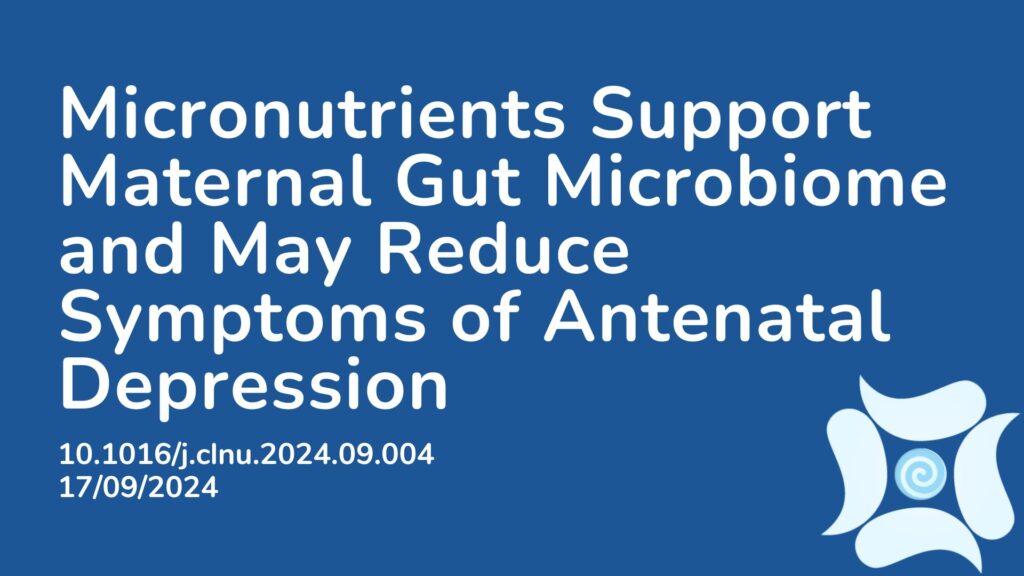Summary:
Maternal depression has been significantly under-researched and often overlooked, despite its considerable impact as a major health concern. Antenatal depression (AD) adversely affects both mothers and their offspring, and when it persists into the postnatal period, it can have long-term negative consequences for the child. Current strategies for managing maternal depression lean toward treatment rather than prevention. Guidelines are being developed for using nutrition to alleviate depression and enhance mental health outcomes; however, additional research is necessary to fully elucidate the mechanisms by which this improves outcomes. The gut microbiome plays a crucial role in an individual’s metabolism and overall health, and its influence on mental health is an intriguing yet contentious area of research. There is mounting evidence supporting the communication between gut microbiota and the brain. Dysregulation of gut microbiota has been observed in various neuropsychiatric disorders, such as anxiety and major depressive disorder (MDD). Furthermore, dysbiosis has been linked to adverse pregnancy outcomes like spontaneous preterm birth, preeclampsia, gestational diabetes, and low birth weight. Adequate maternal nutrition is acknowledged as vital for the health of both the mother and the infant, with research indicating that deficiencies in micronutrients can adversely affect maternal and neonatal health, immune development, fetal growth, and other cognitive and physiological developmental processes. However, the criteria for “adequate maternal nutrition” remain poorly defined, and guidelines vary significantly across countries. Micronutrients, which encompass vitamins, trace elements, and amino acids, are essential for regulating processes in the body. Supplementing with micronutrients presents a promising strategy for managing dietary intake, particularly when dietary changes are challenging, and has shown effectiveness in non-pregnant populations facing mental health issues. Investigation into dietary supplementation with a broad spectrum of micronutrients during pregnancy is crucial and should involve rigorously controlled study designs, as limited information exists regarding whether micronutrient supplementation can promote a healthy microbiome community during pregnancy and whether this could help prevent or alter pregnancy-related mental illness. This study is the first randomized controlled trial to explore the potential effects of micronutrients compared to an active placebo on the human fecal microbiome composition in pregnant women with AD. This 12-week study administered either high-dose micronutrients or an active placebo. Stool microbiome samples and mood data were collected at baseline and after treatment from participants between 12 and 24 weeks of gestation. The results showed that the structure of the microbiome changed throughout the study and that pregnancy caused a decrease in microbiome diversity, but the decline in microbiome diversity appeared to be less pronounced with the administration of micronutrients. The results also indicated a higher abundance of particular strains where antenatal depression scores were elevated. The authors concluded that micronutrient treatment promoted a more diverse and stable microbiome during pregnancy, which could help maintain a more resilient microbial community to provide protection against AD.
Abstract:
Background and Aims: We investigated the effects of high dose dietary micronutrient supplementation or placebo on the human gut microbiome in pregnant women who had moderate symptoms of antenatal depression. There is a significant absence of well-controlled clinical studies that have investigated the dynamic changes of the microbiome during pregnancy and the relationship among diet, microbiome and antenatal depression. This research is among the first to provide an insight into this area of research. Methods: This 12 – week study followed a standard double blinded randomised placebo-controlled trial (RCT) design with either high dose micronutrients or active placebo. Matching stool microbiome samples and mood data were obtained at baseline and post-treatment, from participants between 12 and 24 weeks gestation. Stool microbiome samples from 33 participants (17 in the placebo and 16 in the treatment group) were assessed using 16s rRNA sequencing. Data preparation and statistical analysis was predominantly performed using the QIIME2 bioinformatic software tools for 16s rRNA analysis. Results: Microbiome community structure became increasingly heterogenous with decreased diversity during the course of the study, which was represented by significant changes in alpha and beta diversity. This effect appeared to be mitigated by micronutrient administration. There were less substantial changes at the genus level, where Coprococcus decreased in relative abundance in response to micronutrient administration. We also observed that a higher abundance of Coprococcus and higher alpha diversity correlated with higher antenatal depression scores. Conclusions: Micronutrient treatment appeared to support a more diverse (alpha diversity) and stable (beta diversity) microbiome during pregnancy. This may aid in maintaining a more resilient or adaptable microbial community, which would help protect against decreases or fluctuations that are observed during pregnancy.
Article Publication Date: 17/09/2024
DOI: 10.1016/j.clnu.2024.09.004



